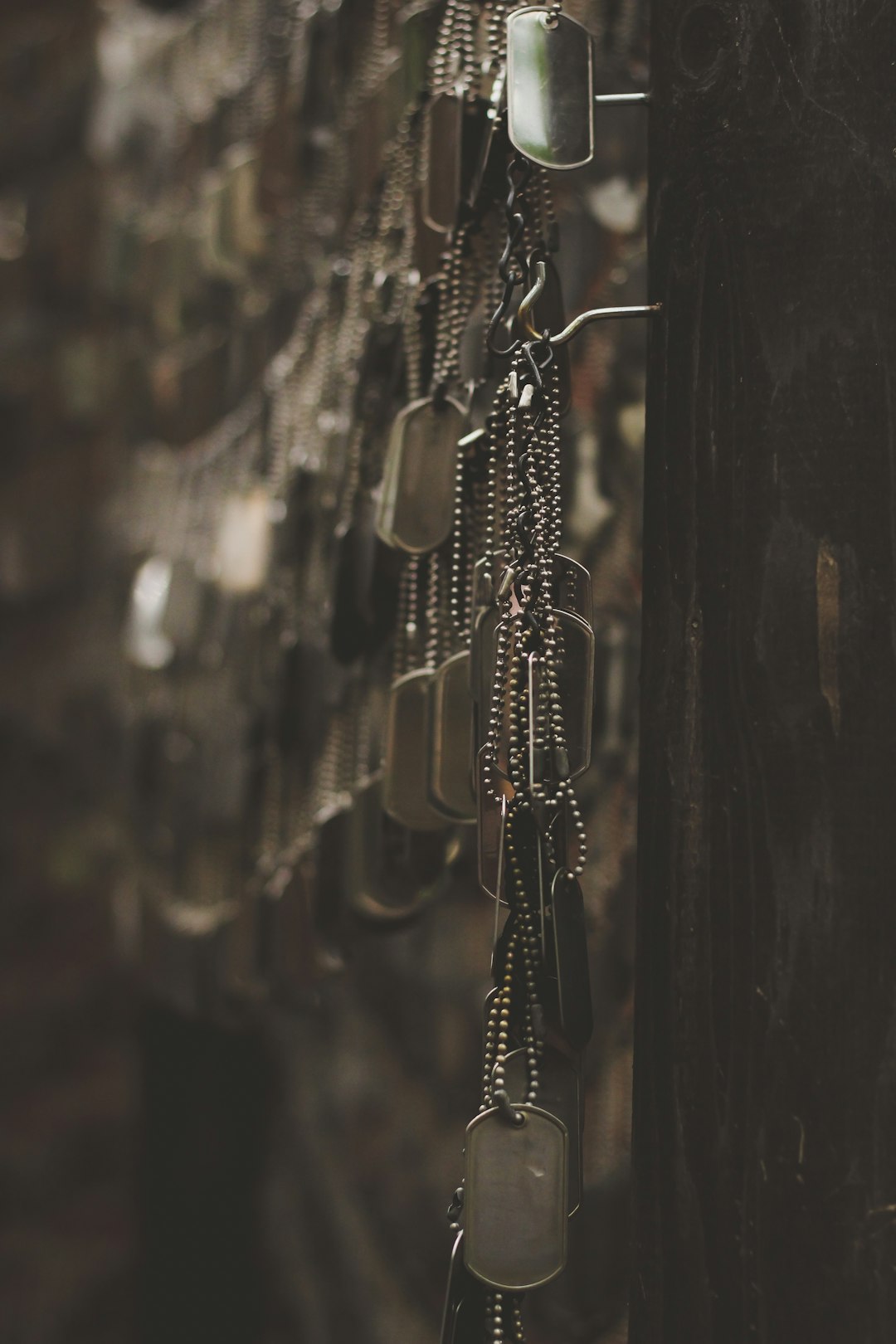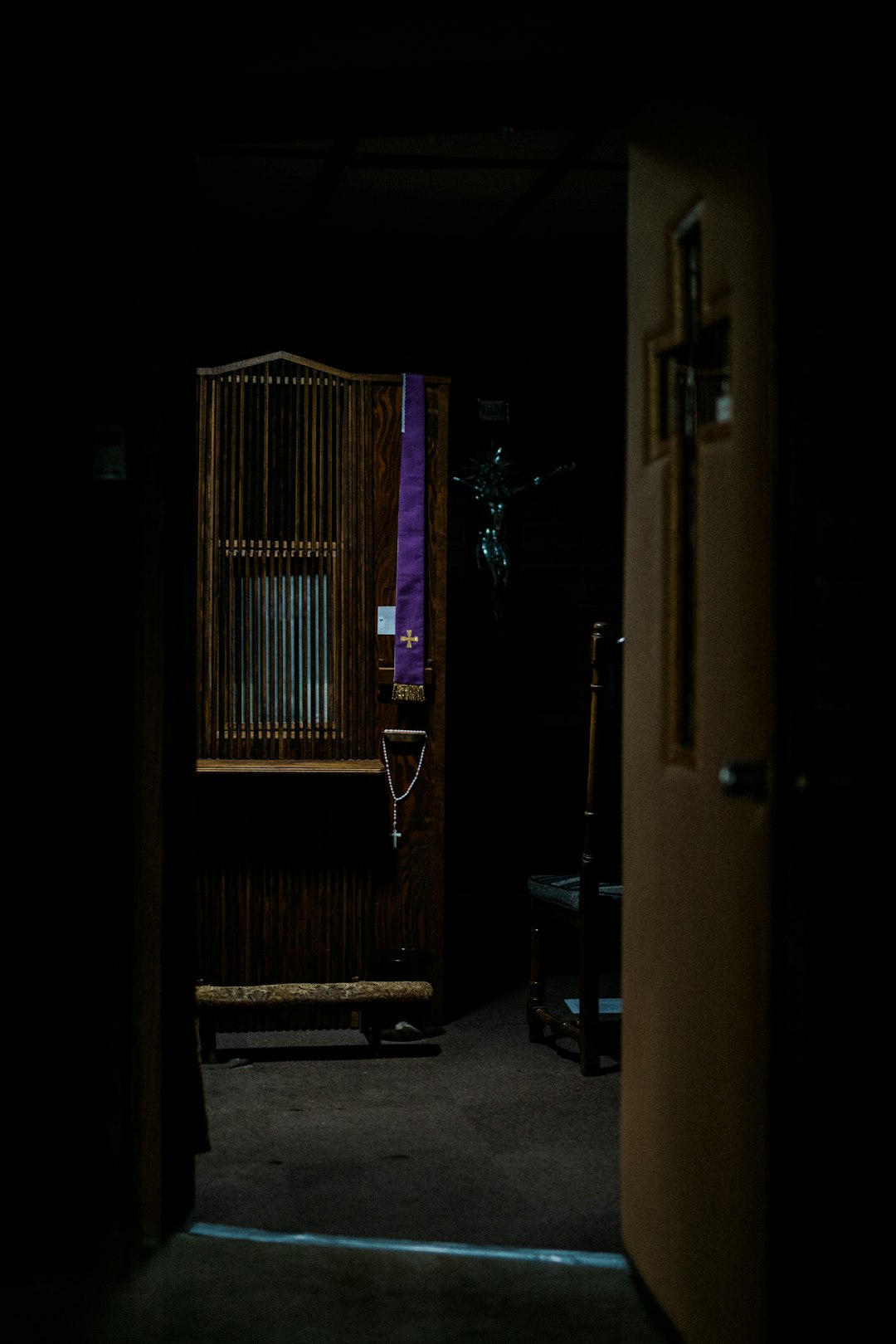Even the Dogs of War Must Cry
a futuristic canine story by Tom Koperwas
Welcome back to the underside, where enhanced pups can hold conversations, but the trauma of war remains.
Content warning: War, drug addiction, attempted suicide

Even the Dogs of War Must Cry
by Tom Koperwas
Sarge, the elderly war dog, lifted her massive 300-pound bulk off her rest mat when she heard the Lieutenant moan in his sleep. She padded unerringly across the cluttered apartment floor to the side of his bed, her implanted cat's eyes glowing in the dimness. Pricking up her long shepherd ears, Sarge listened attentively to her master's muffled cries, knowing only too well what was coming next in his nightmare, the memory of the battlefield incident indelibly etched in her own mind as well.
She had been on night patrol with Lieutenant Sinclair outside the burning ruins of Vladivostok, clearing mines. The Lieutenant was lighting up DNT-detecting bacteria with his laser. She was in the tall grass, scoping the ground with her army-issue cat's eyes. Suddenly, a pack of bright green hunter missiles dropped silently from the sky. The grunts had nicknamed the missiles Christmas Lights because of their peculiar trait of turning red seconds before they destroyed a target. One of them flew in close to the Lieutenant, humming and wavering before him like a green, metallic hummingbird. There was a brilliant flash of red light, a detonation, then a billowing cloud of fire engulfed him.
Sarge found him lying on the ground in a pool of blood, crying out her name, begging for help. She rubbed against him and activated the automatic hypo in the medical kit strapped to her side, releasing the synthetic opioids into his body, which set him adrift in a painless sea of drug-induced euphoria.
Now, in the black shadows of his nightmare, the Lieutenant was shouting for her again—begging for that joyful cessation of pain. But today, despite being a modified German Shepherd, she could do nothing. She howled till the windows of the apartment shook.
Lou Sinclair woke up with a start and yanked the cord above him with his prosthetic hand, lighting the bare bulb on the ceiling, before he fell limply back onto the sheets of his unkempt bed. His sleepy eyes wandered over the interior of the apartment—over the filthy dish-filled sink, the solitary table where the spoons, scattered matches, cotton balls and blood-specked needles lay, down to the immense German Shepherd bearing the distinctive Sapper Corps tattoo on her back, glowing faintly through her silvery fur.
"I'm sick, Sarge," he groaned, rubbing the track marks on his arms. "Really sick."
Pulling himself painfully from the bed, he let his head rest against the crooked headboard. Gazing in a nearby mirror at his gaunt unshaven face, with its long scar stretching across his sunken right cheek, his matted hair, and deeply furrowed brow, he said, "Sarge, I need my medicine."
The Shepherd whined and crawled closer to the bed.
"I can't get it, though, because the law's disconnected my connection." Sinclair chuckled grimly. "So now I have to go to one of the new public health clinics the government's opened and beg for it.”
The lieutenant paused to catch his breath.
“But I'm too wasted to stand up,” he continued, his voice little more than a whisper. “Let alone walk the distance. You have to go for me, Sarge."
Sarge swallowed, activating the voice modulator in her throat. "I'll get it, Lieutenant," growled her voice in the modulator. "You can count on me."
"No man ever had a more loyal friend than you, Sarge," Lou said fondly. "You've stuck by me through five long years of war and two years of peace. Now up on your feet, girl."
The Shepherd rose unsteadily, her hind legs shaking, and waited patiently as Lou sat on the edge of the bed and strapped the black military service vest with the large gold star onto her back, before hooking on the auxiliary medical bag. "You're my last hope," whispered the veteran as he fell limply back onto the bed.
The old war dog pushed open the door with her long gray muzzle and slipped out of the dimly-lit room into the bright light of day.
* * * *

Sarge walked slowly down the hot, trash-strewn streets, past the endless warrens of tents packed with homeless veterans, to the shiny government building that resembled a large, blue amphetamine capsule. The automatic entrance door of the health clinic slid open and she entered, lying down quietly on the clean black carpet in the foyer. The dog watched as a steady stream of veterans came through the door, some brandishing canes and walkers, others seated in wheelchairs. They patted her head or said hello, then they went through the gate beside the clinic's wide blue counter to the offices in the back.
When the Shepherd heard a soft voice beckoning her, she slipped under the gate and walked to the office where a sad, droopy-eyed Bloodhound wearing a red medical service vest with a large silver caduceus was waiting. The two modified dogs greeted each other, rubbing their muzzles gently together, then the Bloodhound stepped back and examined the Shepherd's vest.
"I see by your ribbons and colours that you were a sapper in the Vladivostok and Tianjin campaigns, and a highly decorated one at that," said the Bloodhound through his voice modulator. "It's an honour to have you in our clinic, Sergeant. My name is Bartholomew."
Lifting his head high, the Bloodhound sniffed the air, analyzing the Shepherd's spoor with his hypersensitive nose. "You're exhausted, run down... neglected," he said. "You must eat and rest, then we will talk. Max and Freddy will prepare you a meal."
The old war dog waited as the two silver, manlike figures brought in several bowls of foodstuffs from the clinic’s kitchen. She watched eagerly as their smooth, featureless hands poured and stirred her fresh meal, then she wolfed it down. Dropping down on a thick, padded dog mat she fell asleep. When Sarge woke up, she found herself lying on a white medical table beneath a long, bright light.
"Don't be alarmed," said Bartholomew. "We have taken measures to repair and rejuvenate your body while you slept."
She huffed happily. "I feel like a pup again!" exclaimed Sarge, jumping down to the floor. "Can you help my master too?"
"We found the lieutenant's request for painkilling opioids in the auxiliary medicine bag you were carrying," replied the Bloodhound, looking at Sarge with his big, sad eyes. "The law requires I do an analysis of a patient's spoor before being able to dispense drugs or administer therapy. Lieutenant Louis Sinclair must come to the clinic for a diagnosis if he is to receive any treatment."
"But he's too sick to walk," whined the Shepherd.
"We are here to serve our veterans," replied the canine diagnostician. "Max and Freddy will provide a means of conveyance for you and Lieutenant Sinclair."
* * * *
Sarge bolted out of the clinic shuttle bus the moment it pulled over to the curb in front of the rundown boarding house, and ran across the lawn to the open door of the Lieutenant's apartment. Sliding across the threshold, she came to a stop next to the bed, where her master sat holding a modular handgun in his artificial hand. The veteran's eyes ran across the dog's vest to the empty ring where the auxiliary medicine bag should have been. Raising the barrel of the gun to his head, he said, "I had a feeling you wouldn't be coming back with the medicine. Now I'll stop the pain... forever."
The Shepherd leapt into the air, knocking the Lieutenant's hand aside as the handgun fired, toppling him onto the floor. The sound of gunfire brought Max and Freddy running. They gently picked up the veteran and carried him out to the shuttle, while an inconsolable Sarge ran frantically about him, whining and licking his face.
* * * *
Bartholomew lifted his snout and sniffed the air in the clinic. "You are suffering, Lieutenant Sinclair," he said looking at the veteran. "Not from your war wounds, which have healed, but from your addiction to the painkillers the medics gave you. Drug addiction is a disease. I'm empowered to help alleviate the pain of disease, including withdrawal pains. But not indefinitely. The law allows me to provide you with a week's supply of synthetic opioids. After that, you will have to enter an addiction detoxification program at the hospital."
"Detox," shuddered Lou, his face filled with dread.
* * * *
Lou gave the Shepherd a hug and motioned for her to wait, then started up the hospital stairs. When he got to the main doors, he turned and said, "I love you, Sarge."
Unable to restrain herself, the old war dog ran up the stairs and licked the veteran's real hand. "I love you too, Lou," she said.
Sarge lay down on the lawn outside the medical building where her master lay and waited. She was still there three days later, when the veteran was screaming and pounding the hospital walls from withdrawal pains. Late that night, the clinic bus drove up in the rain and stopped at the curb next to the hospital lawn. Max and Freddy exited the vehicle, gently picked up the sopping-wet dog, then put her inside the shuttle and drove off.
Sarge was laying on a thick, padded dog mat, wrapped in a warm blanket, when Bartholomew came into the clinic's care center to examine her.
"You're an old soldier, brave and loyal," he said gently, listening to the dog whining fitfully in her sleep. "But sometimes, even the dogs of war must cry."
THE END

Meet the author:
Thomas Koperwas is a retired teacher living in Windsor, Ontario, Canada, who writes short stories of horror, crime, fantasy, and science fiction. His work has appeared, or is forthcoming in: Anotherealm; Jakob’s Horror Box; Literally Stories; The Literary Hatchet; Literary Veganism; Bombfire; Pulp Modern Flash; Savage Planets; Dark Fire Fiction; The Sirens Call; Blood Moon Rising Magazine; Corner Bar Magazine; Free Bundle Magazine; The Chamber Magazine; Suburban Witchcraft Magazine; Yellow Mama Webzine; 96th of October.
If you liked this, you might also enjoy:
Redemption
What follows is a story of one’s man viewpoint as he reminisces on his own past, the ups and downs, the abuses against him and those he wrought in turn, and most importantly, the dire circumstances that can arise from a simple decision borne out of frustration and insignificance—and the redemption sought in its wake.
The Presidential Turkey Pleads Guilty
Happy Thanksgiving and welcome to the underside, where nothing is at it seems or behaves according to established traditions. For my non-American friends, in the USA, this is known as “turkey day” since the large bird is the primary coarse at a family feast. One of our silly traditions is to have the President “pardon” a turkey so it doesn’t have to bec…
The Offertory
In which we explore the soft, subdued underbelly of life and regain some of our calm. The Offertory We always do our laundry together on Sunday morning around ten. It’s a religion, perhaps cultish, but more than just tradition. Very few words are spoken, yet it’s more than a library silence. We observe the allotted time for ea…






Compelling and thought-provoking. The idea of a modified war dog capable of speaking and understanding her human companion's needs Is very imaginative. Well done!